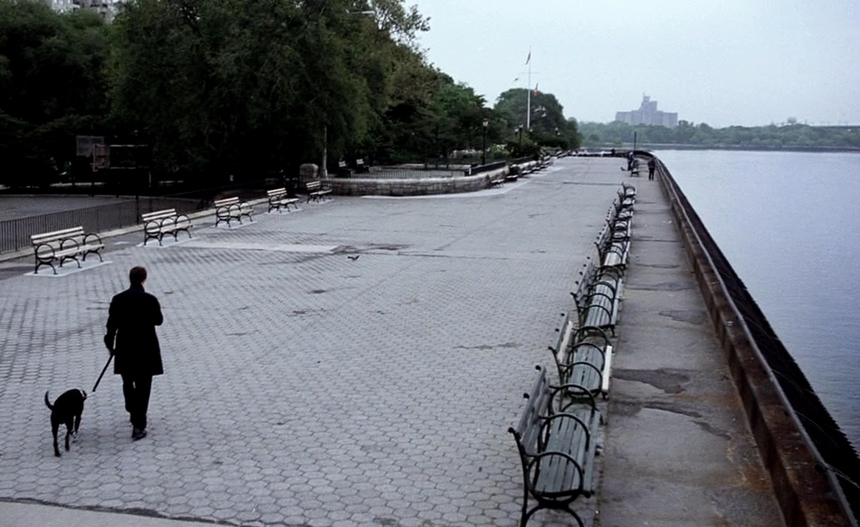15 years on, Spike Lee's 25th Hour remains an effective post-9/11 catharsis, and one of his strongest films

Spike Lee has a noted history of dissent through cinema. It is, more or less, how he rose to prominence. When you think of moments like Mookie throwing that trash can through Sal's window in Do the Right Thing, or even the depiction of Gator's crack addiction in Jungle Fever, you are seeing moments that carry the weight of the "now" without the precedence of anything that came before them. Yes, once upon a time, Spike Lee frequented in controversy and honesty as easily as he did passion and prodigious visual efficacy. And then the late 90's happened.
Part of Lee's fall from grace (critically, anyway) was self-imposed. He saw the flaws and troubling tendencies in the American studio system, and was determined to march to his own beat. The results and quality of his subsequent output varied. However, Lee's strong suits have always been his bluntness and fearlessness, no matter the end result. When he is passionate about his work (which is almost always), there is usually something to take away from it.
Fifteen months after the attacks on September 11th, Lee adapted the novel 25th Hour with the book's author David Benioff. An inflammatory and visually striking catharsis, Lee and Benioff take on the story of Ed Norton's Monty Brogan, a New York drug dealer celebrating (mourning?) his last night of freedom before surrendering himself to prison for a lengthy sentence. Lee skillfully and painfully places this story against a backdrop of post-9/11 anger, frustration, mistrust and confusion deep in the heart of New York City.
Easily Edward Norton's best performance, his portrayal of Monty is sharp and tragic with a jarring sense of both world-weariness and joy for life; street wisdom, but general naivete; rage, but also forgiveness. At any given moment in the film, Norton is balancing a myriad of different emotions that you not only see in his actions and hear in his words, but that you can read on his face like words carefully placed on the blank pages of the novel from which the film was born.
Probably the most famous scene in the film finds Norton angrily castigating his own reflection for his mistakes and bad choices. But as the scope of his anger changes, it grows and warps and widens until it encapsulates his friends, his family and, finally, his beloved city. It's a powerful and bold scene, filled with vitriol and, conversely, regret. It's the kind of scene for which a younger Lee was known. And, in light of the horrific attacks that took place just over a year before, it may be more resounding and resonant than anything that came before it.
However, 25th Hour is more than a few indelible scenes and a strong performance--though, that may have been enough as it was. There's a strong foundation at play with a stellar cast rounded out by Barry Pepper, Phillip Seymour Hoffman (R.I.P), Brian Cox and Rosario Dawson as Monty's respective support circle/source of rage. Each of them a well-rounded character in their own right, they also each play off of Norton's dynamic in specific ways, making the relationships more complex in rewarding fashions as the film goes along.
The film's emotional climax, completely over the top and violent as it is, famously reveals Monty's "plan" for surviving in prison. "Make me ugly," he implores his oldest friends. And in the early dusk of the morning, the sun peering over the Manhattan skyline, Monty inflicts his anger on his closest kin, and they in turn release their's on him--specifically, his face. It's the kind of scene that, removed from context, seems ridiculous, and when placed in context is still preposterous. But it feels like this in a way that is audacious and disturbing. It feels like this in a way that is human and damaged. It feels like this in a way that knows that after its explosion, things will eventually begin to heal. With 25th Hour, Spike Lee made, perhaps, his greatest cinematic dissent yet: the idea of ultimately finding peace.

Do you feel this content is inappropriate or infringes upon your rights? Click here to report it, or see our DMCA policy.





